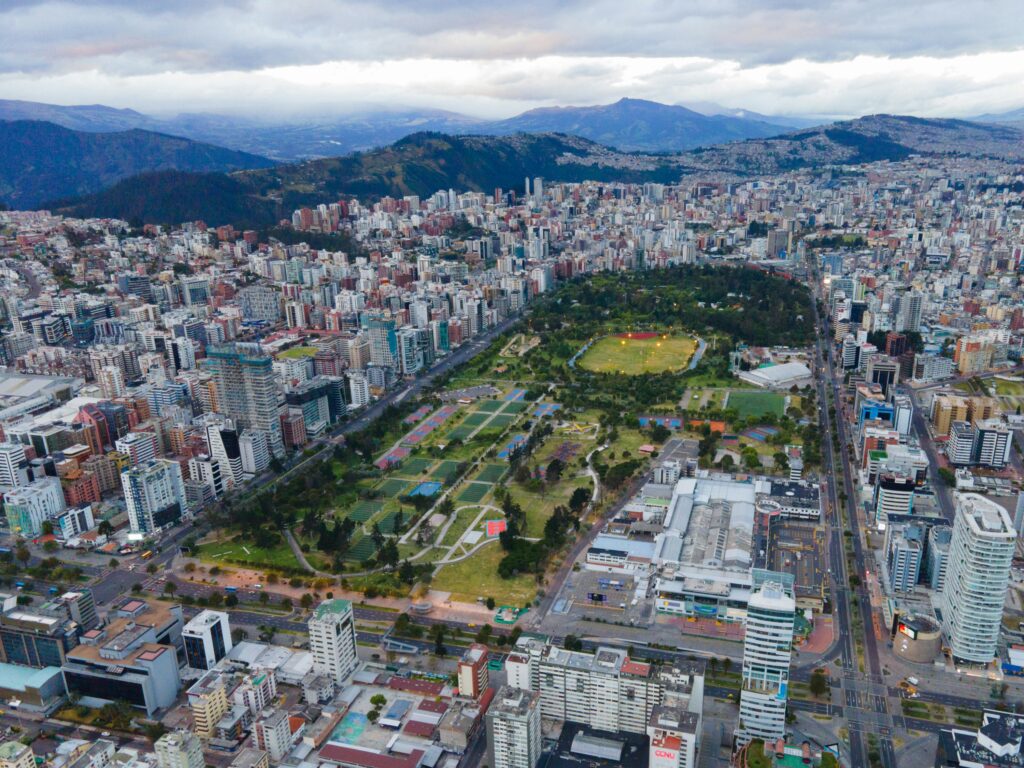
As a digital nomad, I’ve experienced my fair share of Wi-Fi triumphs and fails. One moment, I’m happily video chatting with a client, and the next, I’m left staring at a spinning wheel of doom. If you’re considering Ecuador, you might be wondering: Is the internet reliable enough here for my work?
This post is all about answering that question. We’re diving into the real deal about internet access in Ecuador, especially for remote workers. It matters because a solid internet connection can make or break your experience abroad. So let’s get into it!
Internet Overview in Ecuador
First things first. In Ecuador, the internet landscape varies quite a bit. Major cities like Quito and Guayaquil usually have decent connections. But get a little off the beaten path, and that reliability starts to waver. This is important to know if you’re planning to work in a less touristy area.
Urban vs. Rural
Here’s the thing with urban areas: you generally can find good internet speed—usually around 10-20 Mbps. That’s enough for most video calls and uploads, depending on your workload. However, rural areas might only offer speeds of 1-3 Mbps, which can be frustrating if you’re used to faster connections.
Internet Providers
In the cities, there are a few main internet providers. Claro and Movistar are the most popular. They offer various plans and often have promotions. If you’re thinking of settling in one spot, consider getting a local SIM card.
But here’s the problem: customer service can be hit or miss. You may need a bit of patience if something goes wrong. Researching reviews and asking locals will help you gauge which provider works best.
Wi-Fi Cafés and Co-Working Spaces
If you prefer working outside your accommodation, you’re in luck. Quito and Guayaquil have numerous cafés with good Wi-Fi. Places like Sweet & Coffee or Café del Este in Quito are popular options among remote workers.
Co-working spaces are also popping up in cities. The Newton and La Donuteria in Quito, for instance, offer a fantastic atmosphere and solid internet. You can grab a desk, meet fellow nomads, and get your work done without distractions.
Find Reliable Spots
One tip: visit any café or co-working space before you commit to working there. Check the internet speed yourself. Use tools like Speedtest.net to get reliable data. It only takes a minute and can save you hours of frustration.
Preparing for the Unexpected
Even when you’ve found a reliable spot, glitches can happen. Power outages are not uncommon, especially during rainy seasons. Carry a portable charger or plan work sessions around peak moments. It’s a simple way to stay productive without interruptions.
Mobile Hotspots
Having a mobile hotspot can be a lifesaver. Local SIM cards usually come with data plans. Consider getting one for backup when Wi-Fi fails. I recommend checking out Claro or Movistar plans. They can help you stay connected when you’re out exploring.
Safety and Security
Security is another concern. In busy cities, be cautious about your devices. Using a VPN is advisable for safety and privacy, especially when using public Wi-Fi. It’s a good practice anywhere, but especially in countries where online security may not be top-notch.
Documentation and Backups
Always keep backups of important documents and files. Use cloud storage services like Google Drive or Dropbox. If something goes wrong, you don’t want to lose everything at once.
Cultural Insights and Communication
On the cultural side, locals are generally friendly. You’ll find that a small effort goes a long way. Learning a few basic Spanish phrases can enhance your experience, especially when dealing with internet providers or cafés.
Engaging with the Community
Connecting with other digital nomads can help. Join local Facebook groups or meetups. They can provide tips about the best internet spots and share their experiences. Building a network is beneficial for both work and social life.
Conclusion
In short, Internet access in Ecuador can be reliable, but the experience varies by location. Cities will usually meet your needs, but rural areas might pose a challenge. Testing local connections, having a mobile backup, and being prepared for outages are smart moves.
Before making the leap, weigh your options based on your work needs and lifestyle. With proper planning, Ecuador can be a great base for your digital nomad adventures. Embrace the local culture, meet new people, and enjoy your workday in this beautiful country!
For more insights about digital nomad life, you might find this article on [Related: best digital nomad destinations](https://www.example.com) helpful!
**Related Reading:** – [Related: How to Plan a Solo Trip on a Budget] – [Related: Top Destinations for First-Time Solo Travelers] **#SoloTravel #Internet #Ecuador #Reliable #Digital #Nomads #Comprehensive #Guide #Remote #Workers**